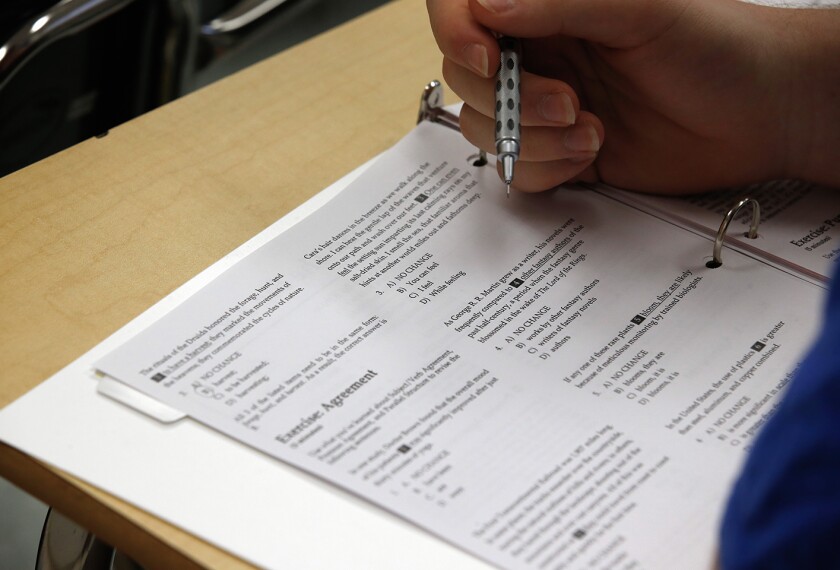To the Editor:
Alfie Kohn was right on point about lots of things in his Commentary “Schooling Beyond Measure” (Sept. 19, 2012).
Yes, the public does have an overrated regard for numbers, and this has often resulted in curriculum reduction; an obsession with comparing, ranking, and winning; and a focus away from the important ethical considerations that should guide our work.
But his Commentary did not tell the whole story. Mr. Kohn only addressed one kind of data, what typically might be labeled “accountability data.”
To be effective, accountability data must be expressed in global terms. Accountability data are often aggregated into single statistics and disseminated publicly, reducing the work of thousands of hours and millions of dollars to a single number. Integral to accountability data is identifying how many and what students are proficient. Do teachers need to know this? Absolutely. Are these answers particularly helpful in identifying what to do next? Not really.
So, we must turn to another type of data, which was neglected by Mr. Kohn. This “better side of data” goes by many names, including instructional-decisionmaking data and assessment-for-learning data.
The key point is this type of data is collected in a different way for a drastically different purpose.
Instructional-decisionmaking data are gathered on an ongoing basis by individual teachers. To be effective, these data must be expressed in very specific terms aligned with the expectations of the assignment. No single summary statistic will do.
When teachers consider the second type of data, the focus is on what the students know and do well, what they do not know or are weak in, and what we (the educators) are going to do about it. Specific and concrete answers to these “what” questions form the heart of the type of data that Mr. Kohn does not address. But it is important data even though practically “numberless” and not fixated on comparing, ranking, or winning. It is all about student learning in relation to established content standards, and, much more importantly, it focuses on what our response as educators will be.
Ronald S. Thomas
Associate Director
Center for Leadership in Education
Towson University
Towson, Md.




